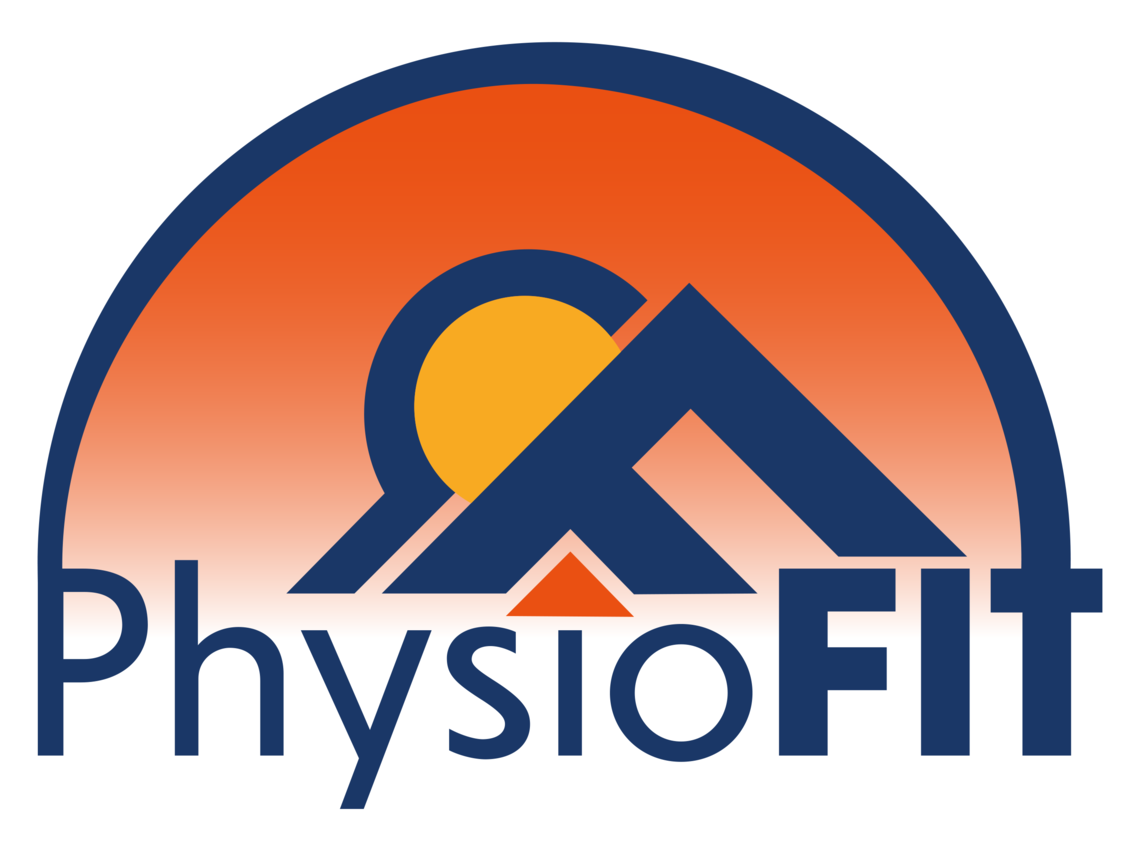Your Source for All Things Physical Therapy in Bend Oregon
The PhysioBLOG
Here, we share informative articles and insights that aim to help you achieve your full potential through our fitness-focused approach to rehabilitation. Our team is dedicated to providing you with valuable tips and techniques that can help you overcome any obstacle, whether you're recovering from an injury, surgery, or striving to build strength and wellness for life.
Stay up-to-date with our latest posts & empower yourself with elegantly simple techniques for optimal health & wellness.

PhysioFIT Spotlight: Why Good Posture is so Important
Please Note: The information provided on our website is intended for general education and is not a substitute for professional medical advice. Each individual's situation and body are different. Therefore, what may work for one person may not work for another. We care about your well-being and advise you to reach out to us to discuss your specific needs before implementing any advice from our website. If you’d like to explore this more or would like to schedule a time with a physical therapist in Bend Oregon, contact us at PhysioFITBend.com
Key Takeaway:
Good posture is important for overall health and wellbeing. It helps maintain proper alignment of the spine, reduces the risk of developing musculoskeletal disorders, and improves breathing and digestion.
The benefits of good posture extend beyond physical health. It also positively impacts mental health by boosting confidence, reducing stress levels, and enhancing cognitive function.
Having good posture involves maintaining a neutral spine, aligning the head, neck, and shoulders properly, and ensuring correct body positioning while sitting, standing, and sleeping. Regular exercise, stretching, and ergonomic adjustments can help improve and maintain good posture.
The Benefits of Good Posture
Good posture is crucial for maintaining a healthy body. It not only improves our physical appearance but also offers numerous benefits. Proper alignment of the spine and body helps reduce strain on muscles and joints, leading to decreased chances of chronic pain and injury. Additionally, good posture enhances blood circulation, allowing for better delivery of oxygen and nutrients to the muscles and organs. It also improves digestion and promotes efficient breathing. Overall, maintaining good posture is essential for optimal health and well-being.
Incorporating regular exercise and stretching into our daily routines can significantly contribute to maintaining good posture. Strengthening core muscles, such as the abdominals, back, and hips, helps support the spine and maintain proper alignment. Practicing activities like yoga or Pilates can improve flexibility, posture, and overall body awareness. Also, using ergonomic furniture and maintaining a proper workstation setup are essential for maintaining good posture, especially for individuals who spend long hours sitting. Sometimes using an exercise ball when having to sit for long durations of time can help.
While most people are aware of the physical benefits of good posture, it also has psychological benefits. Studies have shown that maintaining correct posture can boost self-confidence and improve mood. It also contributes to better concentration and cognitive functions, as the brain receives a steady supply of oxygen and nutrients. In a nutshell, it's kind of a big deal.
Why it Matters
Having good posture plays a crucial role in maintaining overall well-being. It not only enhances physical appearance but also positively impacts one's health. Correct alignment helps reduce strain on muscles and joints, preventing long-term complications. Additionally, it improves breathing, digestion, and circulation. An upright posture also promotes confidence, self-esteem, and a positive mindset. By prioritizing good posture, individuals can enjoy a healthier and more active lifestyle, free from the adverse effects of poor posture. Plus, you significantly help your odds of not ending up looking like the Hunchback of Notre Dame over time. Proper Posture just makes it all a little easier!
What Does It Mean to Have Good Posture?
Good posture refers to maintaining a proper alignment of the body while sitting, standing, or moving. It involves keeping the spine straight, shoulders relaxed, and chin parallel to the ground. Having good posture is crucial as it helps prevent musculoskeletal issues, such as back and neck pain, while also promoting optimal breathing, digestion, and overall physical well-being. By consciously practicing good posture, individuals can reduce the risk of developing various health problems associated with poor alignment and improve their overall quality of life.
Additionally, good posture plays a significant role in enhancing one's appearance and boosting self-confidence. It portrays an image of strength, poise, and professionalism, which can leave a positive impression on others. Moreover, maintaining proper posture is essential for athletes and individuals involved in physical activities, as it allows for better performance, stability, and injury prevention.
It is important to note that good posture is not achieved solely by sitting up straight or standing tall occasionally. It requires developing proper habits and strengthening the muscles responsible for maintaining proper alignment. Regular stretching and strengthening exercises, along with ergonomic adjustments in work and living spaces, can greatly contribute to the maintenance of good posture.
Tips for Improving Posture
Regularly practicing good posture is crucial for overall health and well-being. To help improve your posture, consider the following tips:
Utilize ergonomic furniture and equipment: Invest in a supportive chair and consider using a standing desk. These adjustments can promote correct posture and alleviate strain on the spine.
Engage in core-strengthening exercises: Regularly performing exercises that target your core muscles, such as planks or Pilates, can help enhance your posture by strengthening the muscles that support your spine.
Be mindful of your sitting and standing posture: Maintain a straight back, relax your shoulders, and avoid slouching. Keep both feet flat on the ground while sitting and distribute your weight evenly when standing to reduce unnecessary strain on your back.
Take regular breaks and stretch: Prolonged sitting or standing can cause muscle stiffness and fatigue, leading to poor posture. Remember to take frequent breaks to stretch your muscles, helping prevent discomfort and promoting proper alignment.
Additionally, consider practicing proper posture while performing daily activities, such as lifting heavy objects or working on a computer. By adapting these tips into your routine, you can improve your posture, prevent potential musculoskeletal issues, and enhance your overall well-being.
Remember, maintaining good posture is an ongoing process, and it requires consistent effort and mindfulness. By implementing these tips, you can cultivate excellent posture habits and experience the benefits of a well-aligned spine and improved overall health.
Five Facts About Good Posture
✅ More than 25% of the working population experiences low back pain due to incorrect posture.
✅ Poor posture can lead to tension headaches, the most common type of headache.
✅ Practicing good posture can increase lung capacity and improve respiratory function.
✅ Good posture contributes to higher energy levels by optimizing blood circulation and muscle functioning.
✅ Good posture can improve form and reduce the risk of injuries during exercise.
FAQ
Why is good posture important for overall health?
Good posture is important for overall health as it can help reduce back pain, increase energy levels, and boost confidence. It can also help prevent muscle tension, fatigue, and other common ailments and medical conditions.
How does good posture help reduce back pain?
Having good posture reduces the risk of developing back pain by relieving pressure on the discs, ligaments, and muscles in the spine. By practicing good posture, especially when sitting, you can greatly reduce your risk of experiencing low back pain.
Can good posture help with headaches?
Yes, muscle tension in the neck and upper back caused by poor posture can often lead to tension headaches. By addressing and improving poor posture, you may be able to eliminate or reduce the frequency and intensity of tension headaches.
How does good posture increase lung capacity?
Slouching and incorrect posture can cause the lungs to compress, leading to labored breathing and reduced respiratory function. By practicing good posture, you can increase your lung capacity and make breathing easier.
Does good posture contribute to higher energy levels?
Yes, poor posture can make you feel fatigued and less energetic as it hinders blood circulation and throws bones and joints out of alignment. Good blood circulation and properly aligned bones and joints contribute to optimal muscle functioning, helping you feel more energetic and less tired.
Can good posture improve workout results?
Yes, having good posture allows you to practice proper form when exercising, reducing the risk of injuries. With proper posture and alignment, your physical gains and workout results will be more achievable and noticeable.
Please Note: It's important to note that any exercises or techniques that are shared should be performed under the guidance of a qualified bend physical therapy expert to ensure correct technique and to prevent injuries. A physical therapist can provide a customized exercise program based on the individual's fitness level, goals, and any existing injuries or conditions. If you’d like to explore this more or would like to schedule a time with a physical therapist in Bend Oregon, contact us atPhysioFITBend.com
Ask The Experts

PT, MSPT, OCS, CF-L1

DPT, DNS cert, SFMA

B.Sc, EMT, CF-L1

PT, DPT
Copyright PhysioFIT 2023 . All Rights Reserved


